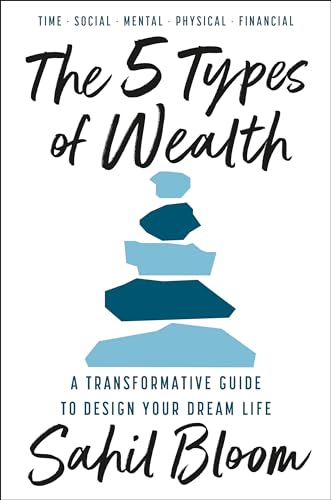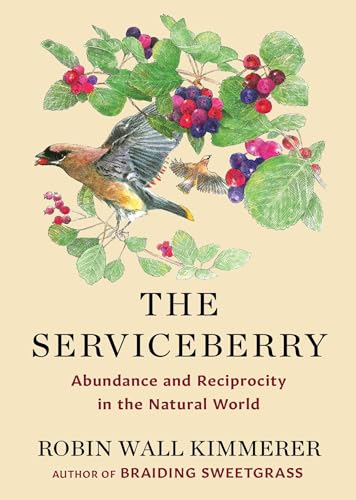Review of THE 5 TYPES OF WEALTH
by Johny McFliggen, PhD Literature & Business, Oxford
In the pantheon of wealth literature, one might say that Sahil Bloom's "THE 5 TYPES OF WEALTH" is like the David Lynch film in a sea of standard superhero movies—it challenges conventions and makes you think, perhaps even uncomfortably so. While details about Bloom's book remain as elusive as a Cheshire Cat in a foggy forest, we can conjecture from his background and typical discourse that he is "wealth whispering" to a generation drowning in financial information but starving for wisdom.
Imagining Bloom's thesis, we might anticipate a categorization that goes beyond the pedestrian confines of bank statements and stock portfolios. If indeed the book delineates five types of wealth, one could assume it will encompass both the tangible and intangible—a holistic view akin to what Morgan Housel might propose in "The Psychology of Money," where perception often trumps reality. Perhaps Bloom, with his finance-savvy lens, expands this realm to include relational, intellectual, or even spiritual capital as essential components of a rich life.
In a literary world where Tony Robbins' "Money: Master the Game" often feels like a boisterous infomercial and Robert Kiyosaki's "Rich Dad Poor Dad" is the dinner guest who tells the same story ad infinitum, Bloom could be offering something more nuanced. Imagine if you will, a synthesis of Dale Carnegie’s timeless wisdom and Tim Ferriss’s disruptive practicality—an intersection where personal growth and fiscal prudence meet for afternoon tea.
Yet, we must acknowledge our speculative approach here, much like a detective piecing together evidence in a noir film without a smoking gun. Bloom’s history of engagement with personal development suggests his book is more than a mere ledger of financial advice; it’s a call to re-examine wealth's true nature. What might seem initially like a how-to guide could very well evolve into a philosophical treatise on what it means to live a fulfilled life in an era where success is often measured by Instagram likes and not the contentment of one's soul.
This elusive tome might not yet have captured the awards circuit or graced The New York Times bestseller list, but if its anticipated insights align with Bloom’s past musings, it promises to be a provocative addition to the genre. Like an undiscovered indie gem at Sundance, "THE 5 TYPES OF WEALTH" could offer fresh perspectives that challenge conventional wisdom and encourage readers to redefine their personal financial narratives.
Until we can hold the book in our hands and dissect its pages with the same fervor as historians poring over ancient scrolls, we remain on tenterhooks. However, should Bloom deliver on expectations, his work will likely resonate with those weary of the monotonous drumbeat of traditional wealth advice and seeking a more enlightened symphony.
Purchase Link: THE 5 TYPES OF WEALTH on Amazon


